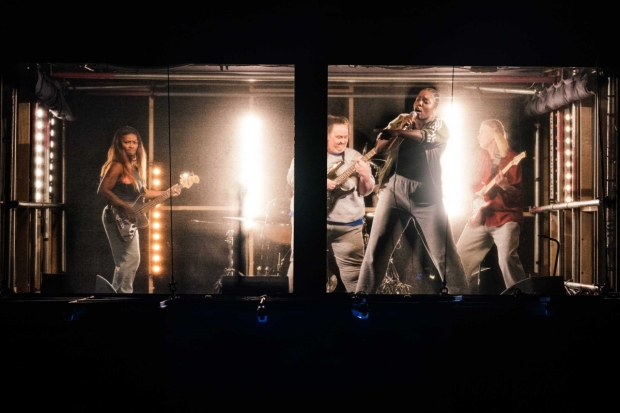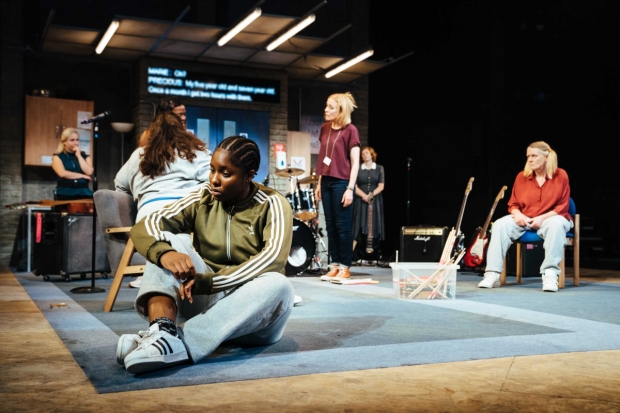Typical Girls at Sheffield Crucible – review
Morgan Lloyd Malcolm’s play premieres in Sheffield

© Helen Murray
This was a perplexing evening, though often entertaining, sometimes powerful and passionate and intermittently as funny, fierce and furious as the pre-publicity suggested.
To uncover the other causes of perplexity we need a brief summary of the play. Marie comes to the prison to facilitate a music workshop, organised by clinical Jo Eccles as part of a programme to help those within develop and readjust to society. Marie's choice is to focus on the music of The Slits, the all-female punk group.
Thereafter the main plot follows the expected course: the women progress musically, enthused by Marie and the music and social message of The Slits; the powers-that-be worry about getting them singing of revolution and the joys of shoplifting; there are conflicts and revelations among participants, but a growing sense of unity; the final gig is endangered by the right-wing press and local interests.
Turning to the positives, it's good to be reminded of how smart and perceptive punk lyrics often were. The performances of nine songs by the on-stage band made up of the cast are excellent, "Typical Girls" and "Number One Enemy" outstanding. The five actors playing are all wonderfully committed, seizing the opportunity for giving the characters some depth in the periodic miked-up monologues, Precious (Eddy Queens) being especially moving while discussing her children.

© Helen Murray
Alison Fitzjohn as Mouth is simply terrific, garrulous, proud of her vocabulary, dominant but prone to burst into fury or withdraw into trembling non-communication, delivering superbly a final telling monologue on how the unit has changed her. Helen Cripps as Jane, the "I'm not common like the rest of you" snob of the group, is also a powerhouse drummer and Lara Grace Ilori (Munch) and Lucy Edkins (Geordie) complete a formidable quintet.
Roisin McBrinn's production for Clean Break is all energy, harnessing the wildness of punk to the behavioural tics of the women. The staging is simple, the dominant feature of a drum kit, and an inspired decision, given the overlapping, often shouted dialogue, is to run the text across the back of the stage, replacing the formal print face with evocative handwriting for the personal monologues.
So what's perplexing? Sadly the main narrative of Morgan Lloyd Malcolm's text doesn't pack the punch of the ancillary songs and monologues. The dialogue is pungent enough, but the plot feels bland, save for the essential message about the humanity of even those who commit violent acts. Carrie Rock can't make much of Jo Eccles, trotting out her business speak, and Lucy Ellinson as Marie is increasingly bizarre, though she proves a sprightly punk lead singer. Malcolm seems to be torn between different climaxes to the play and two simply don't work: you can't have the alarm going off in prison, then build nothing from it, and the moral argument between Jo and Marie, quietly listened to by the inmates, is simply inert.
Fortunately there's always the band to fall back on – and that sends us out happily into the night












